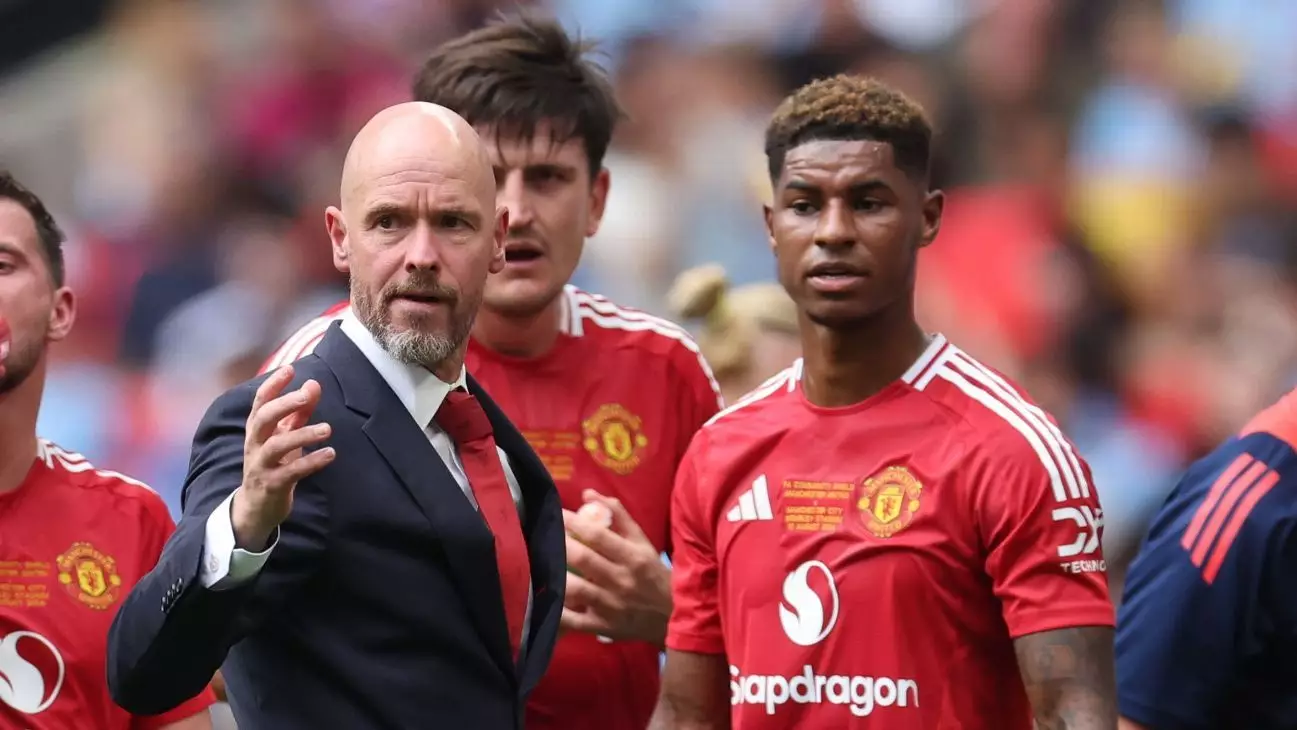The recent goalless draw between Manchester United and Crystal Palace has sparked significant discourse regarding manager Erik ten Hag’s choices, particularly his decision to bench rising star Marcus Rashford. In a match where United controlled the first half but failed to translate dominance into goals, ten Hag’s tactical choice has taken center stage. After impressive performances leading up to this fixture, including a goal against Southampton and a brace against Barnsley, Rashford’s exclusion from the starting XI caught many by surprise. The absence of one of the squad’s key players raised eyebrows, leading to a wave of speculation among pundits and fans alike.
On the field, Manchester United displayed a mixture of aggression and missed opportunities. Alejandro Garnacho, who replaced Rashford, struggled to make an impact, notably wasting several chances, including a promising shot that rattled the crossbar. The inability to capitalize on good positions raised questions about the effectiveness of ten Hag’s decision. The lack of goals amplified the scrutiny around the rotation strategy, prompting analysts to inspect the validity of ten Hag’s reasoning for leaving Rashford on the bench during a pivotal match where three points were essential.
Former players and pundits, including Jamie Redknapp, suggested underlying issues between ten Hag and Rashford, hinting at a possible clash that went beyond mere tactical rotation. This speculation prompted a fervent defense from ten Hag, who vehemently disputed any claims of discord. He emphasized that his decisions stemmed purely from a rotation policy designed to manage player fitness over the long season, particularly with European fixtures starting to pile up. “It was just rotation,” ten Hag asserted, reminding critics to refrain from unfounded assumptions.
Positioning Manchester United in the league’s bottom half with only seven points from five matches, this draw against Crystal Palace underscores broader concerns regarding the team’s performance consistency. The tactical choices made by ten Hag will be under the microscope as the club balances domestic and European ambitions. Upcoming fixtures against FC Twente in the Europa League and a high-stakes Premier League match against Tottenham further complicate ten Hag’s strategic considerations.
While pundits may attempt to dissect managerial decisions from the outside, the complexities of squad management reveal a different narrative. Erik ten Hag’s rotation strategy is built on a foundation of conserving player energy while navigating a demanding schedule, and while immediate results may not showcase success, the long-term vision could yield positive outcomes. Rashford’s role in the squad remains vital, and as United pushes through this challenging phase, the unity and trust placed in ten Hag’s leadership will play a crucial part in revitalizing their campaign.
